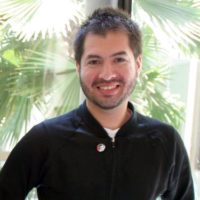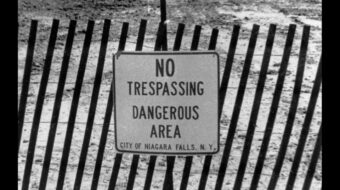When Gustavo Marcelo Rivera was a little bicho (young boy in Salvadoran Spanish) growing up in El Salvador, he saw the suffering and injustices of that country’s civil war, and the vast inequalities that helped start the conflict. Decades later as an adult, he and his brother Miguel started organizing the youth and community to fight poverty. They founded the Friends of San Isidro Cabañas (Spanish: Asociacion Amigos de San Isidro Cabañas, or ASIC).
No one knew that he would end up a victim of the same system he sought to fight against.
But this story isn’t about Marcelo.
This story isn’t even about all the other community activist victims – the mother Dora Alicia Sorto, Ramiro Rivera and Rivera – who have been suspiciously killed in Cabañas, El Salvador, in the last two years.
This story is about the most recent death, Juan Francisco Duran Ayala, who was killed just two months ago on June 4, his body identified 10 days later.
Ayala was a university student who, like others, was a committed anti-mining activist fighting against the Pacific Rim corporation and its plans to mine for gold in the region.
Pacific Rim is a transnational corporation headquartered in Canada, with a subsidiary in Reno, Nevada. Recently, Pacific Rim has explored the region of Cabañas and has found 1.4 million ounces of gold deposits, potentially bringing in $1.3 billion in gains.
Ayala was last seen distributing anti-mining fliers in Ilobasco, a small town in Cabañas. He worked for the Environmental Committee of Cabañas for the Defense of Water and Culture.
It’s not just the community and fellow environmentalists that are aware of the dangerous affects of the mining. Head of the National Civilian Police, Howard Cotto, has come out publically and said that the recent killings of activists is directly linked to the mere presence of the mining projects.
Miguel, his brother Marcelo and other community members first found it suspicious and alarming how much water Pacific Rim was using in exploring the region for gold. After conducting some research and reaching out to other people that have dealt with the effects of mining, they concluded that gold mining utilizes a lot of water and poisons, most notably cyanide, to separate gold from the rock.
Alexis Stoumbelis, executive director of the Committee in Solidarity with the People of El Salvador, said groups like ASIC and other environmentalists, non-governmental organizations and community groups have been working to pass a mining ban in the entire country.
“The NGOs have been working to pressure the legislative assembly in passing this ban on mining. The FMLN [Salvadoran’s leftist political party] has been the only party to support this ban. Basically, it’s sort of sitting in the environmental commission. The FMLN has put a proposal forward but other political parties have not supported it,” Stoumbelis said.
Ayala was last seen putting up posters in support of the mining ban around the community. Although the government has launched an investigation into the killing, many like Stoumbelis are pessimistic that the attorney general will dig deep enough to uncover who is organizing the assassinations.
“In reality, it’s really unclear who is behind the murders. The attorney general has been investigating the murders and charged who actually carried out the killings, but who hired them? Who were the intellectual authors? Marcelo wasn’t in a gang and he was killed by gang members. The attorney general isn’t going deep enough,” Stoumbelis said.
Stoumbelis said that international support has been a critical source of solidarity.
“There’s been a lot of international organizations that have gotten involved. Canada has gotten involved and put pressure on the attorney general. Right after Marcelo Rivera was murdered, we put pressure on Hillary Clinton. Jim McGovern, D-Mass., was at the attorney general’s office in El Salvador and met with different people in the government. Patrick Leahy, D-VT, has also been involved around Juan Francisco’s [Ayala] death and the community. There has been a lot of threats against radio stations and journalists in Cabañas as well.”
Stoumbelis urges readers to visit cispes.org to read more on the anti-mining struggle, and to send faxes, emails and call the attorney general’s office in El Salvador to provide protection to activists and journalists in the area.
Stoumbelis points out that Pacific Rim is in El Salvador because of the Central American Free Trade Agreement. The Funes government has said that it will not authorize mining permits. In retaliation, and under the pretext of the free trade agreement, Pacific Rim has filed a suit against the country totaling $7 million.
During the funeral procession of Marcelo Rivera on June 11, 2009, a group of youths carried a banner in commemoration to the murdered activist. On the banner among other slogans were the poignant and defying words, “You can kill people, but you cannot kill ideas.”

MOST POPULAR TODAY

Zionist organizations leading campaign to stop ceasefire resolutions in D.C. area

High Court essentially bans demonstrations, freedom of assembly in Deep South

Communist Karol Cariola elected president of Chile’s legislature

U.S. imperialism’s ‘ironclad’ support for Israel increases fascist danger at home







Comments